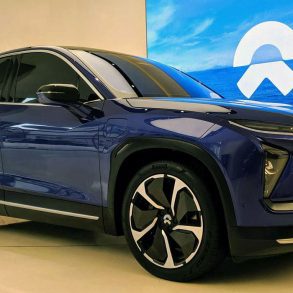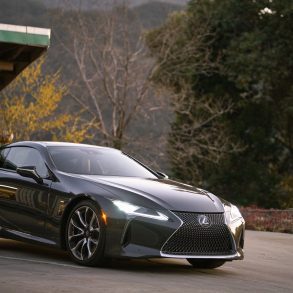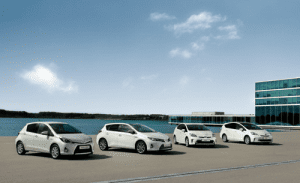
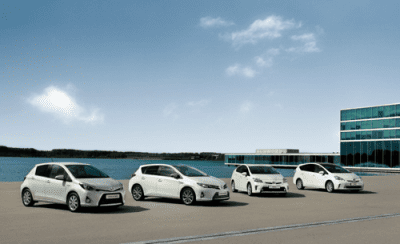 The Dutch Toyota importer is being sued by for allegedly overstating fuel economy claims on its hybrid models. A foundation called the Fuel Loss Foundation (Stichting Brandstofverlies) claims there are huge disparities between the fuel consumption claimed by the manufacturer and the actual mileage that customers experience from real-world driving, especially for its hybrid models like the Prius, Auris hybrid and Yaris hybrid.
The Dutch Toyota importer is being sued by for allegedly overstating fuel economy claims on its hybrid models. A foundation called the Fuel Loss Foundation (Stichting Brandstofverlies) claims there are huge disparities between the fuel consumption claimed by the manufacturer and the actual mileage that customers experience from real-world driving, especially for its hybrid models like the Prius, Auris hybrid and Yaris hybrid.
The foundation has studied the fuel consumption of 158 cars of different brands, by using data from a fuel card company, online fuel economy websites and the Dutch Automobile club. From this study, they claim that the real world fuel economy of those cars was on average 31,7 percent higher than the manufacturer’s claims. Their press release cited the example of a Toyota Yaris Hybrid, which is supposed to run 28,3 kilometers on one liter of gasoline (66,5 USMPG, 80 Imp.MPG) according to Toyota, but owners only manage an average of 17,4 kilometers (40,9 USMPG, 49 Imp.MPG). They also called a few Toyota dealers, and some of the salespeople that were interviewed claimed the car would actually achieve fuel economy of 27 kilometers per liter (63,5 USMPG, 76 Imp.MPG), while others admitted that 18 kilometers (42,3 USMPG, 51 Imp.MPG) would be more realistic. The Fuel Loss Foundation concludes that automakers and dealers knowingly mislead consumers, and the lawsuit is supposed to get compensation from manufacturers for the loss of fuel costs.
Although all manufacturers are accused of overstating their ratings, the foundation specifically sues Toyota, because it is the world’s largest automaker and because the highest disparity was experienced with hybrid vehicles and most of these cars are built by the Japanese brand.
Lawsuits won in the USA are not representative

 The foundation thinks it will succeed in court, as previous lawsuits against Hyundai-Kia and Ford in the United States have proven successful. However, Ford used a loophole in the EPA rules, which allowed them to use mpg tests on the Fusion hybrid sedan to generate the fuel economy label for the C-Max hybrid, because both are on the same platform. But Fusion mpg is better than that of the C-Max and after public criticism, Ford lowered the C-Max’s EPA rating and compensated the owners. Ironically, Toyota could have used the same loophole to give its Prius V (named Prius+ in Europe) the same EPA rating as the regular Prius, but decided to be transparent to its customers and test it separately.
The foundation thinks it will succeed in court, as previous lawsuits against Hyundai-Kia and Ford in the United States have proven successful. However, Ford used a loophole in the EPA rules, which allowed them to use mpg tests on the Fusion hybrid sedan to generate the fuel economy label for the C-Max hybrid, because both are on the same platform. But Fusion mpg is better than that of the C-Max and after public criticism, Ford lowered the C-Max’s EPA rating and compensated the owners. Ironically, Toyota could have used the same loophole to give its Prius V (named Prius+ in Europe) the same EPA rating as the regular Prius, but decided to be transparent to its customers and test it separately.
And the lawsuit against Hyundai-Kia was successful because the manufacturers had made “procedural errors” in internal fuel-economy testing. When the Environmental Protection Agency sampled some of the South-Korean vehicles, they found discrepancies between its own test results and the figures used by Hyundai-Kia. The companies where then sued for overstating the fuel economy of their cars.
Toyota says it has followed the correct procedures when testing their European vehicles, just as any other automaker, and that they meet the European standards. The spokesperson also said that “it is commonly known that there may be differences between the tested fuel economy under the New European Driving Cycle (NEDC) and actual consumption in real world driving conditions.”
European test cycle too far from reality
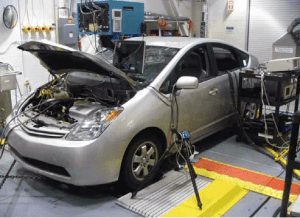
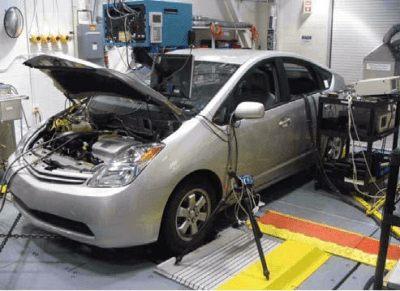 The fact that it’s virtually impossible to achieve the fuel economy as tested by the NEDC in real world driving, is indeed well known, and the European Union is working on a new procedure, which should give results closer to reality. This test cycle should be effective from 2017. In the meantime, consumers should be aware the NEDC only gives an indication of how the fuel consumption of vehicles mutually compare to one another.
The fact that it’s virtually impossible to achieve the fuel economy as tested by the NEDC in real world driving, is indeed well known, and the European Union is working on a new procedure, which should give results closer to reality. This test cycle should be effective from 2017. In the meantime, consumers should be aware the NEDC only gives an indication of how the fuel consumption of vehicles mutually compare to one another.
Toyota probably isn’t too worried about the lawsuit, as they have just followed the procedures. They are not to blame that the procedures are outdated and give results that are too far from the reality. With a € 49,- minimum non-refundable entrance fee for the class-action lawsuit and up to 30% commission on potential compensations, the lawyers are likely to be the only winners.
Edit March 19th 2014: Toyota has been cleared of all charges. Read the article Toyota cleared in fuel-economy lawsuit




